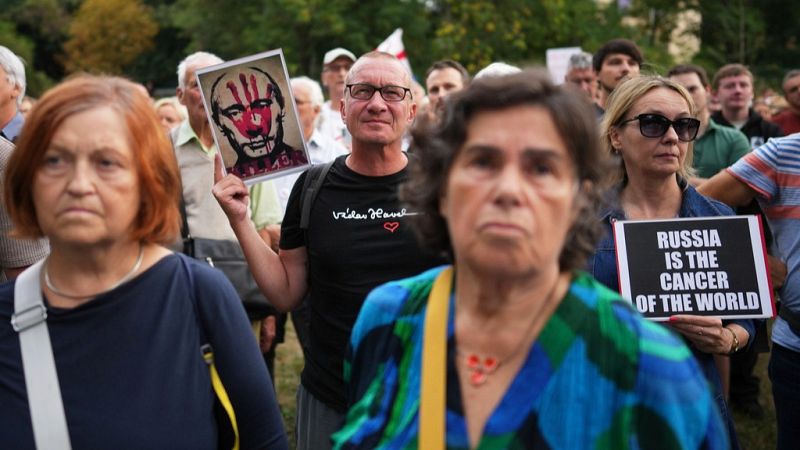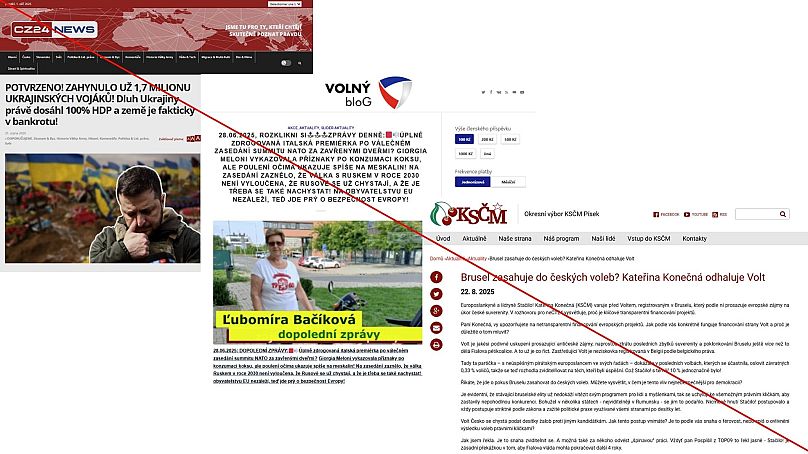Russian propaganda is 'overtaking' legitimate news in the Czech Republic

A new report claims that disinformation websites in the Czech Republic publish around 120 articles a day, outpacing the country's main reliable news outlets.
Czech news outlet Voxpot teamed up with an IT association called Druit to analyse 360,000 publications across 16 platforms over the past 25 years.
The investigation revealed that disinformation servers in the country churn out more articles every day than the largest Czech media houses, often doing so covertly with Russian money or funding from entities close to Russia.
According to the report, some of the largest disseminators of false news are websites called Cz24news, which publishes up to 2,000 pieces a month and attracts around 3 million visits, Zvědavec, Nová republika, Protiproud, and Ac24.
Nová republika was founded by Ivan David, a current MEP for the far-right SPD party and former minister of health, while Protiproud is reportedly connected to funding from Russian President Vladimir Putin's circle through its own founder.
Voxpot said that roughly 10% of the articles were direct translations of pieces from state-owned and state-controlled Russian outlets such as Sputnik and RT, or other websites linked to the Russian propaganda machine.
"Of the total number of 20,975 articles citing Russian propaganda sources, more than 7,000 came from the state agency Sputnik, another 4,000 from RT television, and more than 2,000 from RIA Novosti," the report said.
The EU has banned these media platforms since Russia's full-scale invasion of Ukraine in February 2022.
In the Czech Republic, those flouting sanctions on the sites can be met with fines of up to 50 million koruna (€2 million) or eight years in prison.
The report notes a common tactic that Russian propaganda campaigns often employ in Europe: as election time approaches, the amount of disinformation ramps up.
The Czech Republic is due to hold its parliamentary elections in early October, which will see the election of all 200 members of the Chamber of Deputies and the prime minister. Voxpot says that, with the vote on the horizon, around 4,000 misleading articles are published per month, the highest rate in history.
Some of the misleading headlines include the supposed bankruptcy of Ukraine, allegations that Italian Prime Minister Giorgia Meloni was spotted taking cocaine, and accusations that Brussels will interfere in the Czech elections.
Other articles contain threats of a nuclear attack by Russia if Ukraine and NATO continue to resist against Moscow's war, and others even contain bizarre claims that environmental campaigners are pushing for cannibalism
Ultimately, the goal of such headlines is to try and muster distrust in Western democracy and political leaders, and to try and generate a more positive public opinion towards Russia.
Today


